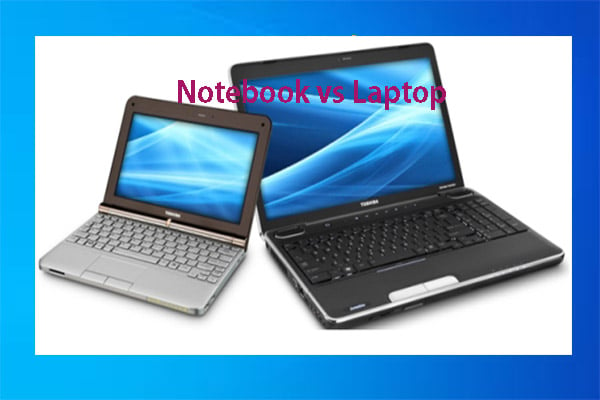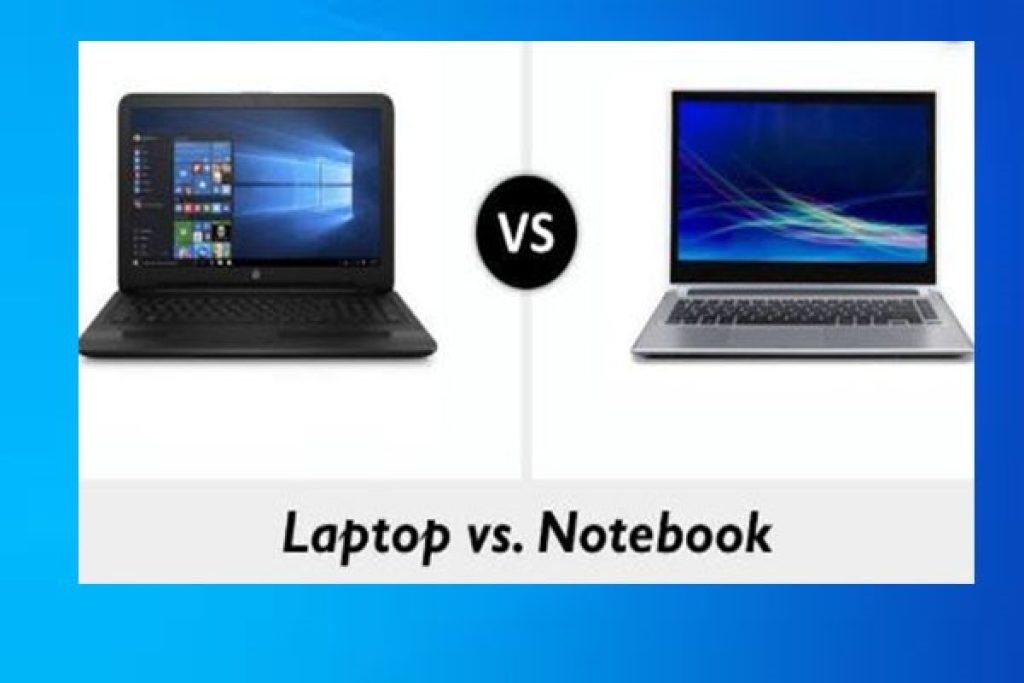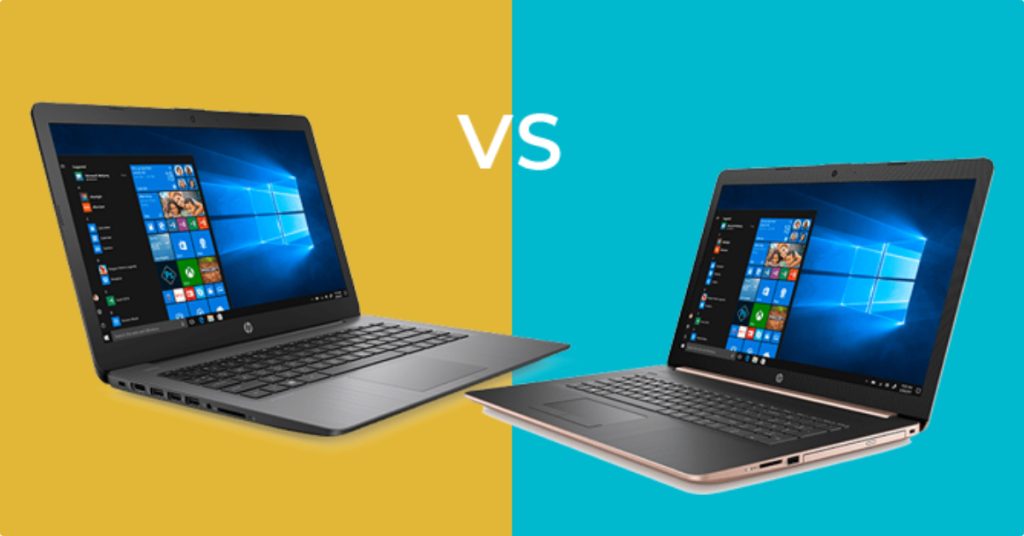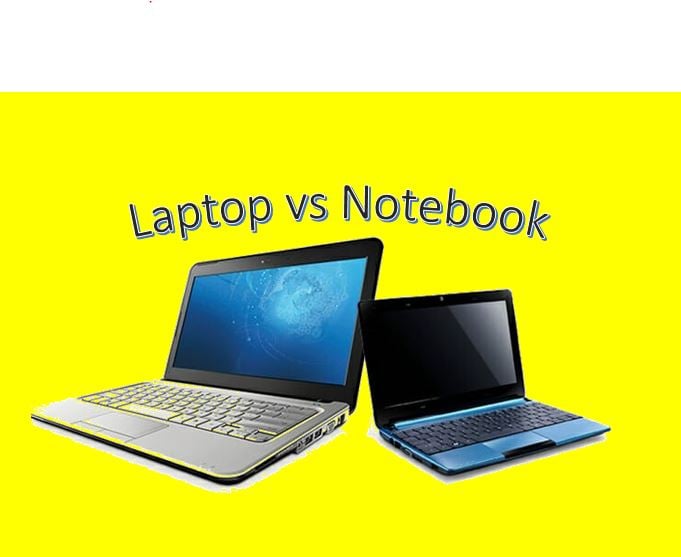Why Buy A Notebook Instead Of A Laptop?

I’m sure many of us have faced this dilemma at some point – whether to opt for a notebook or a laptop. In a world where technology continuously evolves, it can be difficult to keep up with the latest trends and make an informed decision. So, why buy a notebook instead of a laptop? Well, let’s explore why a notebook may be the right choice for your needs.
Understanding the Difference Between a Notebook and a Laptop
Technical Differences
When it comes to technical differences, notebooks and laptops have some variations that set them apart. Notebooks are generally smaller in size and lighter in weight compared to laptops. They typically come with less processing power and have smaller storage capacities. Laptops, on the other hand, are larger in size and weight, offering more space for powerful components and greater storage capabilities. They often come with advanced features such as dedicated graphics cards and higher RAM capacities.
Physical Appearance Differences
Notebooks are known for their compact and lightweight design. They are extremely portable, making them easy to carry around. Laptops, on the other hand, are generally bulkier and heavier due to their larger form factor. While notebooks are designed with mobility in mind, laptops are built to provide a comfortable user experience with larger screens and more extensive keyboard layouts.
Performance Differences
When it comes to performance, laptops usually outshine notebooks due to their more powerful hardware components. Laptops are designed for multitasking and handling resource-intensive tasks, such as video editing and gaming. Notebooks, on the other hand, are more suited for everyday tasks such as web browsing, document editing, and content consumption.
Price Differences
Price is often a significant factor influencing the decision between a notebook and a laptop. Notebooks are generally more affordable compared to laptops, mainly due to their lower specifications. Laptops with advanced features and higher performance capabilities tend to come with a higher price tag. So, if budget is a concern, notebooks may be a more attractive option.
Portability of Notebooks vs. Laptops
The Weight Factor
One of the key advantages of choosing a notebook over a laptop is its weight. Notebooks are designed to be lightweight and portable. They are significantly lighter than laptops, making them convenient for users who need a device that can be carried around effortlessly. Laptops, on the other hand, can be quite burdensome due to their bulkier build and heavier weight.
Size and Convenience
Another aspect to consider when comparing notebooks and laptops is their physical size. Notebooks are generally smaller in size and have a more compact form factor. This makes them easier to slide into a bag or backpack, making them ideal for individuals constantly on the move. Laptops, with their larger screens and keyboards, occupy more space, which can be a drawback for those who prioritize convenience and portability.
Ease of Transportation
The ease of transporting a computing device is essential for many users. Notebooks are specifically designed for mobility, which means they offer ease of transportation. Their lightweight and compact design make them the perfect choice for individuals who frequently travel, whether it be for work, school, or personal reasons. Laptops, while still portable, may require a dedicated laptop bag or case to protect them during transportation.

This image is property of technewsdaily.com.
Battery Life Comparison
The Efficiency of Notebook Batteries
Battery life is a crucial consideration when choosing between a notebook and a laptop. Notebooks tend to have better battery life compared to laptops. This is because notebooks are typically equipped with energy-efficient processors and smaller screens, which consume less power. Due to their compact size and lower power requirements, notebooks can often provide longer usage times when running on battery power alone.
Laptop Battery Lifespan
Laptops, on the other hand, may not offer the same level of battery efficiency as notebooks. With their larger screens and higher-performance hardware components, laptops tend to consume more power. As a result, their battery life may be shorter, requiring users to plug in more frequently to ensure continuous usage. However, it is worth noting that advancements in battery technology have improved in recent years, and some laptops now offer longer battery life, although still generally not comparable to notebooks.
Impact on Mobility
The battery life of a computing device plays a crucial role in its overall portability and mobility. A notebook with a longer battery life allows users to work or engage in various tasks without having to be tethered to a power outlet. This is highly advantageous for individuals who frequently find themselves on the go and need their device to last for extended periods. Laptops, with their potentially shorter battery life, may require more strategic planning to ensure uninterrupted use during travel or when working remotely without access to a power source.
Performance and Capability
Processing Power of Notebooks
While laptops generally have more processing power than notebooks, it is essential to understand that notebooks can still deliver satisfactory performance for everyday tasks. Notebooks may have lower-end processors, but for web browsing, word processing, multimedia playback, and other common activities, they are more than capable of delivering a smooth user experience. Notebooks are a sensible choice for individuals who prioritize portability and do not require extensive computing power.
Laptop’s Versatility and High-performance
Laptops, on the other hand, are designed to handle a wide range of tasks, including resource-intensive activities like gaming, video editing, and software development. They come equipped with faster processors, dedicated graphics cards, and larger RAM capacities, allowing for smooth multitasking and enhanced performance. If you require a device that can handle demanding applications and processes, a laptop would be the better choice.
Why Notebooks Can Still Be Preferable
Notebooks, despite their relatively lower performance capabilities, still offer a range of benefits that make them preferable for certain users. Their compact size and lightweight nature make them an ideal choice for students, frequent travelers, or individuals who prioritize mobility. Additionally, notebooks are more energy-efficient, allowing for longer battery life and reduced power consumption. For individuals who primarily engage in everyday tasks and do not require extensive processing power, a notebook can provide a suitable computing solution without sacrificing portability.

This image is property of www.minitool.com.
Awareness of Purpose
Recognize your Computing Needs
Understanding your specific computing needs is crucial in making an informed decision between a notebook and a laptop. Take into consideration the kind of tasks you regularly perform on your device. Do you primarily use it for browsing the web, streaming media, and working on documents, or do you engage in resource-intensive activities such as gaming, graphic design, or video editing? Identifying your priorities and the applications you use will help guide you towards the most suitable choice.
Deducing if Notebook Serves the Purpose
For individuals whose computing needs primarily revolve around everyday tasks like internet browsing, email management, word processing, and media consumption, a notebook can serve their purpose perfectly. Notebooks provide a balance between performance and portability, allowing users to accomplish their daily tasks efficiently while enjoying the benefits of a lightweight and compact device. Notebooks are often more affordable, making them an attractive option for those looking for cost-effective solutions without compromising functionality.
Are Laptops Too Much Power For Your Needs?
Laptops, with their enhanced performance capabilities, are better suited for individuals whose computing needs involve demanding tasks such as gaming, video editing, programming, or running resource-intensive software. If you regularly engage in activities that require extensive processing power, larger storage capacities, and dedicated graphics cards, a laptop will provide you with the necessary performance and versatility. However, it’s crucial to consider whether paying a premium for these advanced features is justifiable if your needs primarily revolve around more basic applications.
Price Comparison
Cost of Notebooks
One significant advantage of notebooks over laptops is their affordability. Notebooks, with their lower-spec components and smaller form factor, are generally more budget-friendly. They offer a cost-effective solution for individuals who need a portable computing device without breaking the bank. Notebooks provide excellent value for money, especially for users whose computing needs do not require high-performance hardware.
Cost of Laptops
Laptops, being more powerful and versatile, often come with a higher price tag. The advanced hardware components and larger form factor contribute to the increased cost. If you need a device capable of handling demanding tasks or if you require higher storage capacities, faster processors, and dedicated graphics cards, a laptop would be the logical choice, albeit at a steeper price. It is essential to consider whether the added performance justifies the additional expense.
Price to Performance Ratio
The price-to-performance ratio is a crucial factor to consider when deciding between a notebook and a laptop. Notebooks offer a more affordable option for individuals seeking a portable computing device for everyday tasks. While laptops may be pricier, their enhanced performance capabilities can justify the higher cost for users requiring more advanced applications and multitasking capabilities. It is essential to evaluate your specific computing needs and budget constraints to determine which option provides the best value for you.

This image is property of www.electronicshub.org.
Minimalist Design Approach of Notebooks
Slim and Sleek Design of Notebooks
Notebooks are known for their sleek and minimalist design. They often feature slim profiles, lightweight bodies, and a clean aesthetic. This contemporary design approach appeals to individuals who appreciate a minimalist and modern look. The compact size and thinness of notebooks contribute to their portability, making them a stylish companion for those constantly on the move.
Available Customization Options
Despite their compact size, notebooks often offer customization options that allow users to personalize their device. From selecting the color and finish to customizing the specifications such as processor, RAM, and storage capacity, users can often tailor their notebooks to fit their specific preferences. This customization aspect offers a unique selling point for those who like to make their devices reflect their personality and style.
Laptop Designs vs Notebook Designs
Laptops, by virtue of their larger form factor, often have more space for design elements and features. They can accommodate larger screens, full-sized keyboards with dedicated numeric keypads, and additional ports. However, this larger size may also make them appear less sleek and portable compared to notebooks. In terms of design, laptops tend to offer more versatility and practicality, while notebooks prioritize minimalism, portability, and aesthetic appeal.
Maintenance and Durability
Ease of Maintenance for Notebooks
When it comes to maintenance, notebooks often have an advantage over laptops. Due to their compact size and simplified design, notebooks are generally easier to maintain and troubleshoot. Components are often more accessible, and repairs or upgrades can be performed relatively easily. This ease of maintenance can save users time and money, especially if they prefer handling minor issues themselves.
Durability Matters: Notebooks vs Laptops
Durability is an important factor to consider, especially if you’re frequently on the move or tend to use your device in more demanding environments. Notebooks typically boast sturdy built quality to withstand the bumps and jostling associated with mobility. However, laptops designed with durability in mind can also offer robustness and minimize the risk of damage. It ultimately depends on the specific model and its construction materials.
Cost of Repairs
In the unfortunate event of a device malfunction or damage, repair costs can play a significant role in decision-making. Generally, notebooks tend to have lower repair costs due to their simpler design and more accessible components. Laptops, on the other hand, may require specialized repairs or replacement parts, leading to potentially higher costs. It is helpful to consider the overall durability and repairability of the device before making a purchasing decision.

This image is property of www.lifewire.com.
The Software Aspect
Operating Systems in Notebooks and Laptops
Both notebooks and laptops run on various operating systems such as Windows, macOS, and Linux. The choice of operating system often depends on personal preference, compatibility with software applications, and overall user experience. Notebooks and laptops generally offer a wide range of options, ensuring that users can find the operating system that best suits their needs.
Software Compatibility
When it comes to software compatibility, notebooks and laptops usually provide similar support for different applications. Popular software programs are typically designed to work seamlessly on both platforms. However, it is worth noting that certain specialized software or applications may have specific hardware requirements or may perform differently on notebooks or laptops due to variations in processing power and graphics capabilities.
Difference in Software Performance
While the software performance between notebooks and laptops may vary, the impact is often negligible for most everyday tasks. Notebooks, with their more modest specifications, can handle web browsing, word processing, and media consumption without any noticeable performance issues. Laptops, equipped with more powerful hardware, can offer a smoother user experience when running resource-intensive applications. However, for individuals whose computing needs do not involve heavy usage or advanced software programs, both notebooks and laptops should provide satisfactory performance levels.
Eco-Friendly Considerations
Power Consumption of Notebooks
Notebooks are known for their energy-efficient components, which contribute to their extended battery life. This reduced power consumption leads to a smaller carbon footprint and contributes to environmental sustainability. Individuals concerned about their energy usage and environmental impact may find notebooks to be a more eco-friendly choice.
Environmental Impact of Producing Notebooks vs Laptops
The production process of computing devices involves the extraction of raw materials, energy consumption, and manufacturing waste. While both notebooks and laptops contribute to the environmental impact of electronic waste, notebooks often have a smaller environmental footprint due to their smaller form factor and simplified construction. The environmental implications of producing devices, however, extend beyond form factor and must also consider factors such as manufacturing practices and material sourcing.
Recycling and Upgrading Options
When it comes to recycling and upgrading, both notebooks and laptops offer opportunities for extending the lifespan of electronic devices. Recycling programs are available for both types of devices, allowing users to dispose of their old devices responsibly. Additionally, both notebooks and laptops offer the option to upgrade certain components, such as RAM and storage, to prolong their usage and reduce electronic waste. By utilizing these options, users can contribute to a more sustainable approach to computing.
In conclusion, the decision between a notebook and a laptop depends on various factors such as the specific computing needs, portability requirements, budget constraints, and personal preferences. Notebooks are excellent choices for individuals who prioritize portability, affordability, and energy efficiency, and whose computing needs revolve around everyday tasks. Laptops, with their added performance capabilities and versatility, are ideal for users requiring more advanced functionalities and multitasking capabilities. Ultimately, understanding one’s requirements and evaluating the differences between notebooks and laptops will guide users towards making the right choice that aligns with their preferences and computing needs.

This image is property of www.minitool.com.







